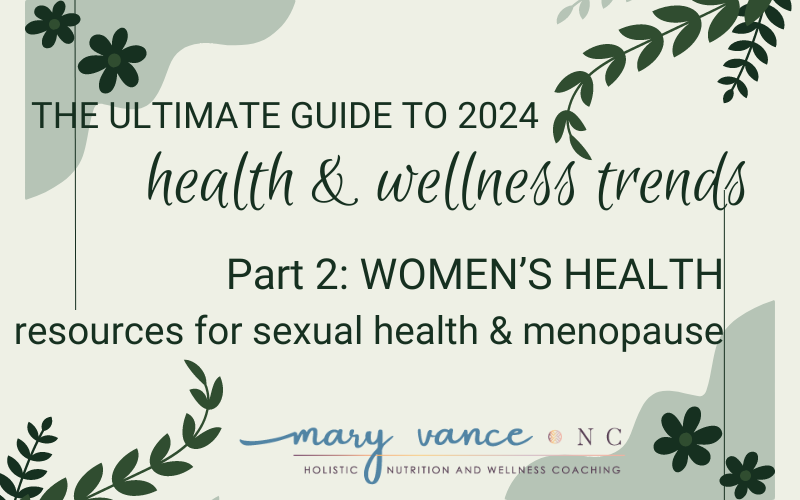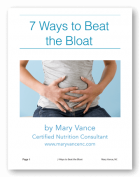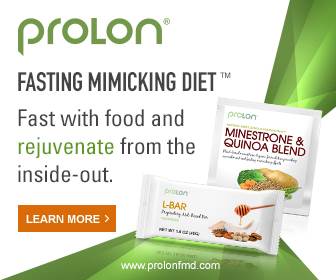This is my 2024 guide to nutrition & wellness trends, and up second in the series is women’s health, and more specifically, how the conversations around women’s health are changing for 2024 and the future.
You can see installment one in the series on the sobriety movement here.
Women’s health topics such as menstruation, fertility, menopause, sexual health, hormones, and gynecological illness have been historically hushed and taboo, almost embarrassing even. Add to that the fear around women becoming hysterical at “that time of the month.” The jokes about how we can’t have a lady president because she’d smash that red ‘blow up the world’ button when she had mood swings. The word hysteria is derived from the Greek word hystera which means uterus. Do we have a similar word to describe a man’s violent outbursts?
I remember getting my period at age 12 and being absolutely mortified to buy tampons. I remember the shame around menstruation, like you had to hide it. “The curse.” 🙄 To this day there exists a stigma around menstruation that it’s dirty, makes women psychotic and unpredictable, and we still have a deep lack of education and awareness around a biological process that happens monthly to women for the better part of 40 years.
Similarly, women for years have suffered with unpleasant menopausal symptoms in silence. Most are told it’s just a part of life; you’ll have to deal with it; it’s probably all in your head; here’s an anti-depressant. Same is true for women who experience menstrual or sexual pain, PMS/PMDD symptoms, or symptoms of hormone imbalance.
Women often see several different specialists for menopausal symptoms and still aren’t properly supported because doctors aren’t recognizing the root cause: hormonal shifts. I cannot tell you how many women with whom I’ve worked have told me nightmare tales about being bounced around from doctor to doctor, their debilitating symptoms dismissed as ‘just part of being a woman,” and of course the standard being handed a prescription for an anti-depressant for their hysteria. “My only option offered by my doctor was birth control and antidepressants. My husband got testosterone day one,” is a common comment I hear from women struggling with PMS, PMDD, menopausal symptoms, or any condition that’s mainly caused by fluctuating or unbalanced hormones.
A (woman) doctor more than once told me ‘there’s no such thing as unbalanced hormones, and it’s not worth testing your hormones because they fluctuate so much.” The first time this happened I was in my 20s and hadn’t had a period for nearly 2 years. The second time this happened was around a discussion about supporting changing hormones during peri-menopause.
The Changing Conversations Around Women’s Health
To add to the shame women often encounter around our normal biological processes, we have also historically been dismissed and underrepresented when it comes to healthcare. There are huge gender biases in healthcare. Women are 30% more likely to be misdiagnosed than men, and female-specific conditions like endometriosis, fibroids often take 10 or more years for accurate identification and diagnosis. This can equate to years of lower quality of life. I especially hear this from women who have complex autoimmune conditions, Lyme disease, or infertility issues.
One study published in Academic Emergency Medicine found that women who went to the emergency room (ER) with severe stomach pain had to wait for almost 33% longer than men with the same symptoms.
Women are much more likely to experience gaslighting in medical settings, and their concerns are not taken as seriously. Men are more likely to advocate and speak up for themselves, but when women present with several complaints, doctors may think they’re hypochondriacs and don’t address the individual issues.
The lack of female representation in the medical field meant that doctors treated men and women the same, with a one-size-fits-all approach. They assumed that health and disease followed the same track in both sexes, and the majority of scientific research and clinical trials included only male participants. There’s a staggeringly small amount of research in women’s health, and it has been underfunded for decades. Most recently we saw this in Covid vaccine trials. Read my story about lack of female participation in these trials and the resulting menstrual irregularities women were not warned about here.
Women finally began demanding better services to meet their needs throughout their life spans. We are now seeing women take the lead in addressing a wide range of conditions from menopause to postpartum depression. Not only is this translating to a better standard of care, but two areas in particular really stand out: women’s sexual pleasure and treatment options for menopause.
Women’s Health & Sexual Satisfaction
Since the late 1980s we have had Viagra for men. And there’s a huge orgasm gap: Men are more than twice likely to climax during sex than women. And yet they got the first sexual enhancement pill. Around 43% of women report sexual problems (source) and only recently have we gotten a med to address hypoactive sexual desire (Addyi).
We’re now bringing women’s sexual pleasure into the conversation. We now have fancy sex toys of varying types; creams, serums, suppositories, and oils to enhance pleasure; more sophisticated options for lubrication; and libido-boosting gummies and supplements. Here’s a look:
For pleasure:
These creams/lotions and serums/oils are applied directly to the clitoris prior to sex to enhance pleasure. They contain varying ingredients (like CBD oil which seems to be popular) that increase blood flow and sensation.
- Vella topical arousal and orgasm cream: “a pre-play topical lotion that uses proprietary nanotechnology to make climax easier, longer, more intense, and more satisfying for women at every life stage.” Contains CBD that “causes vaginal and clitoral smooth muscle relaxation when effectively delivered”
- Lubricyl sensation serum: “a stimulating serum harnessing the power of All-Natural OD-17 Herbal Extracts”
- OMG! cream, billed as female Viagra: “The same active ingredient used in Viagra stimulates vaginal tissue to heighten pleasure leading to better, more fulfilling orgasms”
- Foria has a number of arousal botanical and CBD-based serums: “When applied to the clitoris, inner labia and inside the vagina, this topical oil works with your body to enhance pleasure and sensation, and help you have bigger, better orgasms”
For dryness/moisture:
Note that these products are designed to help women with chronic dryness caused by hormonal changes or menopause. You could certainly use lubes instead of or in addition to these offerings, but these work to promote and replenish long term comfort vs lube which is temporary. On the subject of lube, do NOT use coconut oil which has a high pH and can disrupt the vagina’s natural acidity.
There are sooo many of these on the market; here are just a few.
- Lubracil Oral Softgels: hormone-free relief from vaginal dryness; a once daily oral nutraceutical supplement with clinically proven ingredients
- Rosebud: This gynecologist-tested, hormone-free intimate moisturizer helps hydrate, condition, and replenish intimate skin
- Julva: cream applied daily to enhance moisture, elasticity, and replenish tissue. Does contain small dose of DHEA (a hormone) which is “naturally transformed by the vulvar area tissue into estrogen and estradiol, which develop moisture from within.” Promises better and more intense orgasms.
- Silky Peach Cream: helps restore plumpness, elasticity, and lubrication of vaginal tissue. Contains small amount of estriol to plump vaginal cells and reduce UTI and incontinence.
- Bonafide has a number or products for menopausal & perimenopausal dryness and support for satisfaction.
For libido:
It was only in the 1940s when there was scientific confirmation of the existence of the female orgasm(!), which was a massive discovery because it unequivocally proved women enjoy sex equally to men and her purpose for intercourse is not just for reproduction. (source)
- Maude gummies: S7 is the key ingredient for this product as it’s been “clinically shown to increase nitric oxide by 230% which plates a crucial role in sexual arousal by relaxing smooth muscle tissue in the genitals, allowing them to fill with blood.”
- Dame Desire Gummies: support mood & intimacy by providing stress relief, balancing of female hormones related to burnout, and boosting of the pleasure neurotransmitter dopamine.
- LibidoStim: not a gummy but a daily supplement complex of nutrients and botanicals to promote female sexual health and desire. The unique and targeted combination of ingredients provides support for natural testosterone production, optimization of testosterone and estrogen metabolism, healthy blood flow, and adrenal support.
There are even CBD-based products designed to help ease menstrual pain. “CBD-Infused Tampons Are A ‘Promising Option’ To Treat Menstrual Pain, Study Finds. Tampons infused with CBD “achieved statistically significant pain reduction” in cases of severe cramps and menstrual pain, according to a new study in the Journal of Endometriosis and Uterine Disorders.” (source)
I use and recommend menstrual cups.
Women’s Health & Menopause
Women’s menopausal symptoms have classically been dismissed as just a part of life, but suffering is optional. Yes, there are dietary and lifestyle changes that support this transition (read more on that here), but there are a number of products available nowadays to support desire and comfort during this phase of life.
- Midi: often covered by insurance, this is a virtual care clinic created by specialists in perimenopause and menopause. You can book online sessions and get prescriptions to treat menopausal symptoms.
- Oova is a kit, an at-home hormone test for perimenopause that lets you track estrogen, luteinizing hormone, and progesterone levels and month-to-month trends to see where you are in perimenopause.
- Alloy: offers online sexual health, skin, and hormone replacement solutions for menopause relief. They also have a sex-enhancing cream for even better orgasms + wrinkle-reversing moisturizer.
- Evernow: evidence-based medical menopause treatment & support. This is an online monthly fee-based subscription service for menopause care.
- JoyLuxe is a device that helps promote a stronger pelvic floor and more control thanks to the patented red-light benefits.
“In just a few sessions a week, you can experience more natural lubrication, increased sensation, and a feeling of tightness—all from the privacy and comfort of your own home.” - Equelle: is a supplement providing “all in one menopause relief.” Contains non-hormonal “S-equol, proven to naturally address the root cause of symptoms related to estrogen decline.”
- MacaLife & MacaPause: 2 different maca phenotypes offering hormone balance support. These are separate supplements. MacaLife “has the highest success rate in published clinical trials of any perimenopausal herbal supplement in the world and is the only to demonstrate statistically significant effects on hormones. Addresses the root cause of hot flashes, night sweats, mood swings and other perimenopausal symptoms.” MacaPause offers the same support for menopause/post menopause.
There are many, many non-hormonal menopause formulas (often herbs and probiotics) that offer relief from weight gain, insomnia, mood swings, hot flashes. I’ve heard great things about Happy Mammoth and Monorescue.
Conclusion
The discussions around women’s health are finally evolving to offer us solutions for sexual health, menopause, period pain, and other gynecological concerns. There are so many solutions for intimacy issues, hormone balance, menopause and peri-menopause, some of which include online subscription services to find the right prescription for your needs.
Women’s concerns have been traditionally downplayed or cast aside, so it’s heartening that we’re seeing more research and attention to out specific health concerns. And it’s about time that we acknowledge and normalize menstruation and menopause. Better shamefully late than never.

Mary Vance is a Certified Nutrition Consultant and author specializing in digestive health. She combines a science-based approach with natural therapies to rebalance the body. In addition to her 1:1 coaching, she offers courses to help you heal your gut and improve your health. Mary lives in San Francisco and Lake Tahoe in Northern California. Read more about her coaching practice here and her background here.








